Introduction
As we usher in the New Year of 2025, students across the globe are gearing up to tackle new challenges and opportunities in their academic journeys. The beginning of a new year is not just a time for resolutions; it’s also an ideal moment to reassess study habits and implement effective strategies for success. In this article, we will explore New Year Study Tips that cater to students of all ages, including kids, intermediate learners, and graduates. By incorporating these tips into their routines, students can enhance their learning experiences and achieve their academic goals.
The Importance of New Year Study Tips
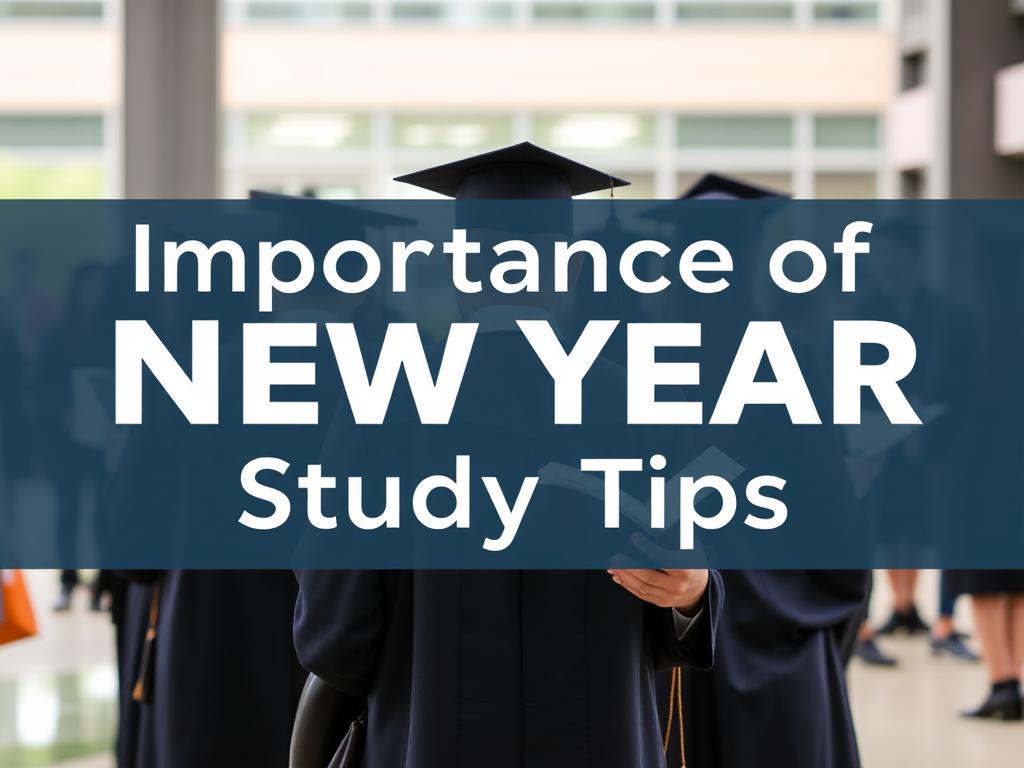
The New Year is synonymous with fresh starts and new beginnings. For students, this is an opportunity to reflect on past academic performances and set new goals. Implementing effective New Year Study Tips can help students develop better study habits, improve their time management skills, and ultimately lead to higher academic achievement. Whether you are a parent looking to support your child, an intermediate student seeking to improve your grades, or a graduate preparing for the next step in your career, these tips will provide valuable insights.
New Year Study Tips for Kids

1. Set Clear and Achievable Goals
One of the most effective New Year Study Tips for kids is to set clear and achievable goals. Encourage children to think about what they want to accomplish in the upcoming year. This could include improving in a specific subject, reading a certain number of books, or completing homework on time. By setting specific goals, children can focus their efforts and track their progress throughout the year.
2. Create a Study Schedule
A well-structured study schedule is essential for effective learning. Help kids develop a routine that includes dedicated study time each day. This not only instills discipline but also makes studying a regular part of their daily lives. Incorporating breaks into the schedule is also crucial, as it allows kids to recharge and maintain focus.

3. Use Visual Aids
Visual aids can significantly enhance a child’s learning experience. Encourage the use of colorful charts, diagrams, and flashcards to make studying more engaging. Visual aids can help children better understand complex concepts and improve memory retention, making them an essential part of any New Year Study Tips list.
4. Incorporate Fun Learning Activities
Learning doesn’t have to be boring! Incorporate fun activities into study sessions, such as educational games, quizzes, or interactive apps. This not only makes studying enjoyable but also reinforces the material in a memorable way.
5. Foster a Positive Learning Environment
Creating a positive learning environment is crucial for effective studying. Ensure that the study space is quiet, well-lit, and free from distractions. Encourage kids to personalize their study area with motivational quotes or pictures to inspire them.
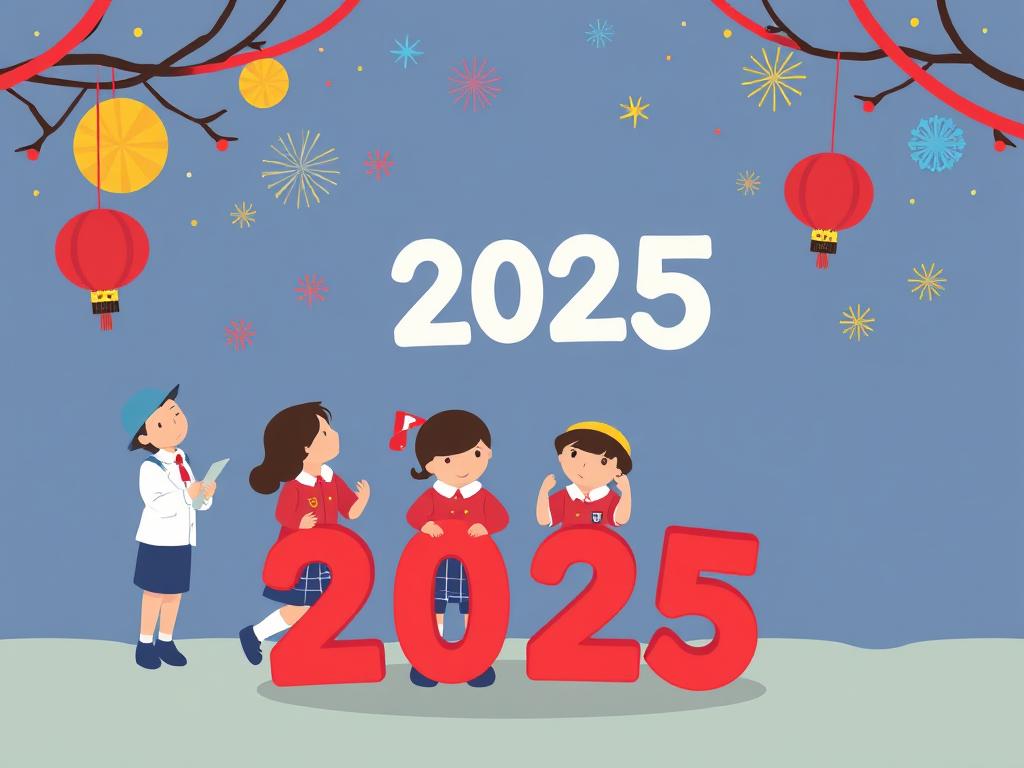
6. Encourage Reading for Pleasure
Reading is a fundamental skill that supports academic success. Encourage kids to read for pleasure in addition to their school assignments. This can help improve their vocabulary, comprehension skills, and overall love for learning.
7. Teach Time Management Skills
Time management is a vital skill for students of all ages. Teach kids how to prioritize tasks and manage their time effectively. This can include using timers for study sessions or creating to-do lists to keep track of assignments.
8. Celebrate Achievements

Celebrating small victories can boost a child’s motivation and confidence. Whether it’s completing a challenging assignment or achieving a good grade, take the time to acknowledge their hard work and accomplishments.
9. Encourage Open Communication
Encourage kids to communicate openly about their struggles and successes. This can help them feel supported and understood, making it easier for them to seek help when needed.
10. Stay Positive and Resilient
Finally, instill a positive mindset in children. Teach them that challenges are a part of the learning process and that perseverance is key to overcoming obstacles. A positive attitude can make a significant difference in their academic journey.
New Year Study Tips for Intermediate Students
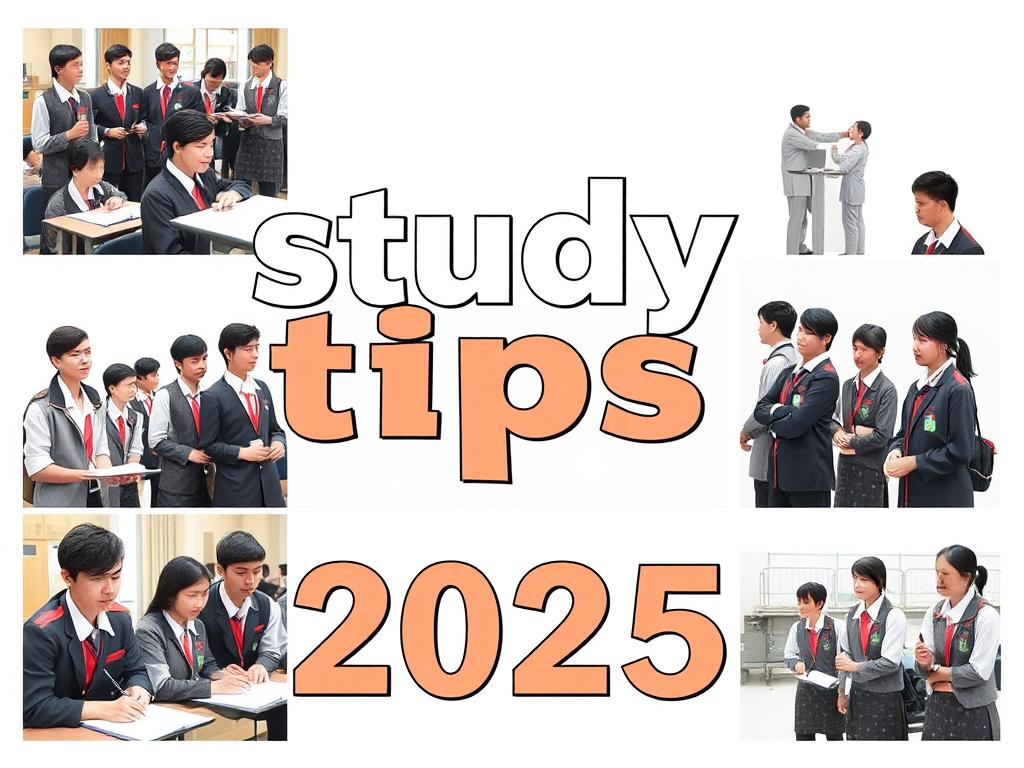
As students transition into intermediate levels of education, the academic demands often increase. Here are some New Year Study Tips specifically designed for intermediate students:
1. Set SMART Goals
Encourage intermediate students to set SMART goals—Specific, Measurable, Achievable, Relevant, and Time-bound. This framework helps students create clear objectives and develop actionable plans to achieve them.
2. Develop Effective Study Techniques
Intermediate students should explore various study techniques to find what works best for them. Techniques such as summarization, self-explanation, and the use of mnemonic devices can enhance learning and retention.
3. Utilize Technology Wisely
In today’s digital age, technology can be a powerful tool for learning. Recommend educational apps, online resources, and digital study tools that can aid in their studies. However, remind them to limit distractions from social media and other non-educational content.
4. Join Study Groups
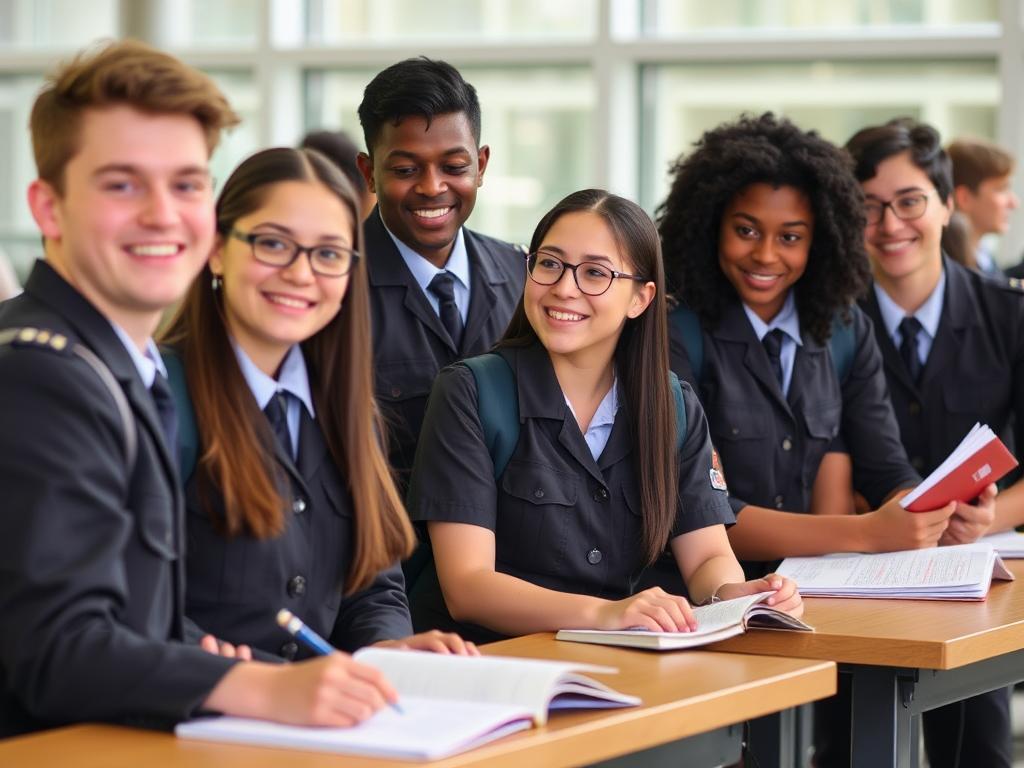
Collaboration can enhance the learning experience . Encourage intermediate students to join study groups where they can share knowledge, discuss challenging topics, and motivate each other. Study groups can provide diverse perspectives and foster a sense of community among peers.
5. Practice Past Papers
Familiarizing oneself with exam formats is crucial for success. Encourage students to practice past exam papers to understand the types of questions they may encounter. This practice can help reduce anxiety and improve performance on test day.
6. Stay Healthy
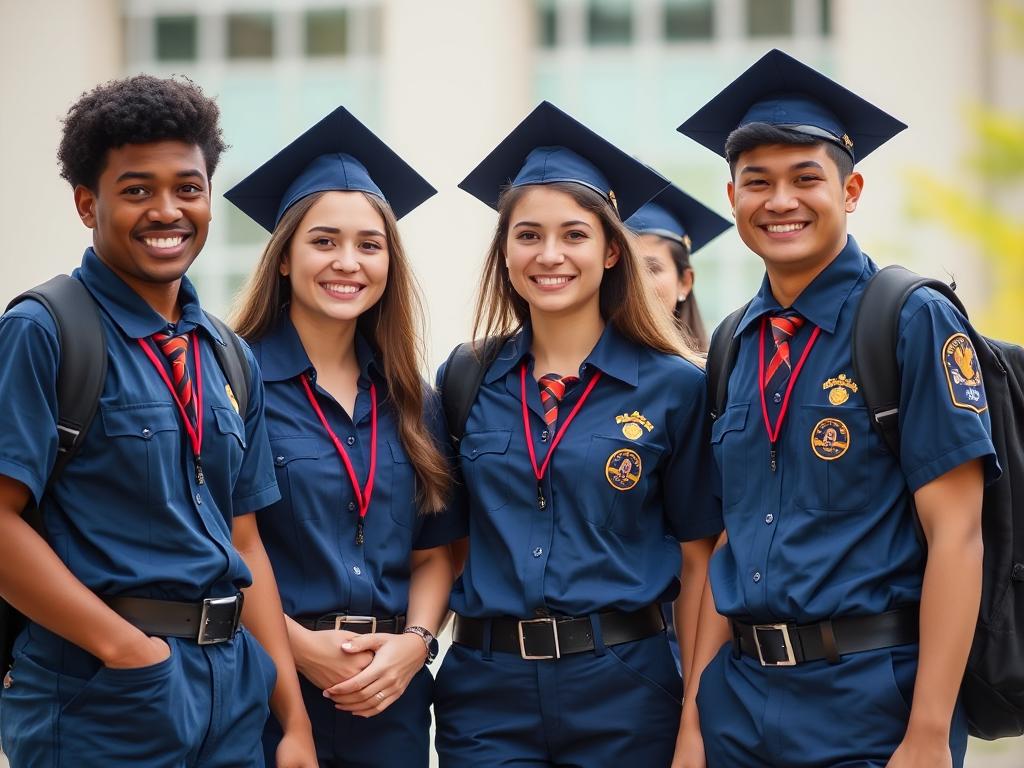
A healthy body supports a healthy mind. Emphasize the importance of a balanced diet, regular exercise, and adequate sleep. These factors significantly impact cognitive function and overall well-being, making them essential components of effective New Year Study Tips.
7. Master Time Management Skills
Intermediate students often juggle multiple subjects and extracurricular activities. Teach them how to prioritize tasks and manage their time effectively. Tools like planners, digital calendars, and time-blocking techniques can help them stay organized and focused.
8. Seek Feedback from Teachers
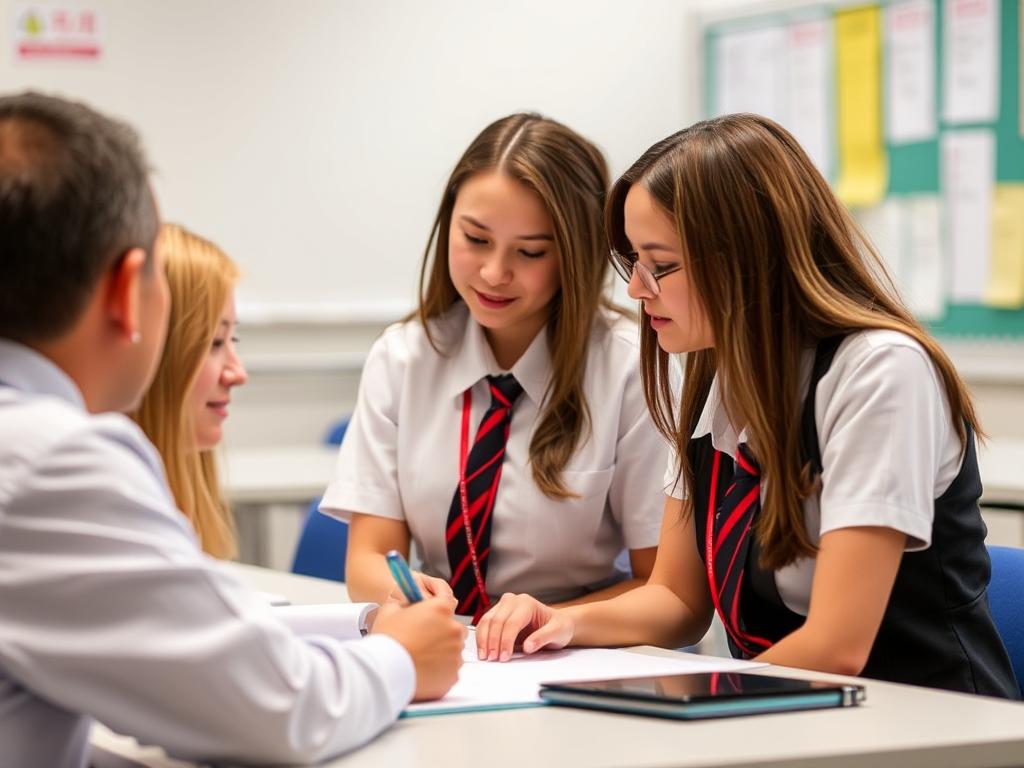
Encourage students to actively seek feedback from their teachers on assignments and assessments. Constructive feedback can provide valuable insights into areas for improvement and help students refine their study strategies.
9. Limit Multitasking
While it may seem efficient, multitasking can hinder learning. Advise students to focus on one task at a time during study sessions. This approach can lead to better retention and a deeper understanding of the material.
10. Reflect on Progress Regularly
Encourage students to take time at the end of each week to reflect on their progress. This practice can help them identify what strategies are working, what needs adjustment, and how they can continue to improve throughout the year.
New Year Study Tips for Graduates

As graduates prepare for the next phase of their academic or professional journeys, it’s essential to adopt effective study habits. Here are some New Year Study Tips tailored for graduates:
1. Set Long-Term Career Goals
Graduates should take the time to define their long-term career goals. Understanding their aspirations can help them focus their studies and choose relevant courses or projects that align with their future plans.
2. Develop Advanced Study Techniques
At the graduate level, students often need to engage with complex material. Encourage them to develop advanced study techniques such as critical analysis, synthesis of information, and research methodologies to enhance their learning experience.
3. Network with Peers and Professionals

Networking is crucial for career development. Encourage graduates to connect with peers, professors, and industry professionals. Building a strong network can provide support, mentorship, and potential job opportunities.
4. Utilize Research Resources
Graduates should take advantage of research resources available at their institutions. This includes libraries, online databases, and academic journals. Familiarizing themselves with these resources can enhance their research skills and academic performance.
5. Balance Work and Study
Many graduates may be balancing work and study commitments. Teach them effective strategies for managing their time and energy, such as setting boundaries, prioritizing tasks, and practicing self-care.
6. Stay Updated on Industry Trends
Encourage graduates to stay informed about trends and developments in their field of study. This knowledge can enhance their academic work and prepare them for future job opportunities.
7. Seek Mentorship
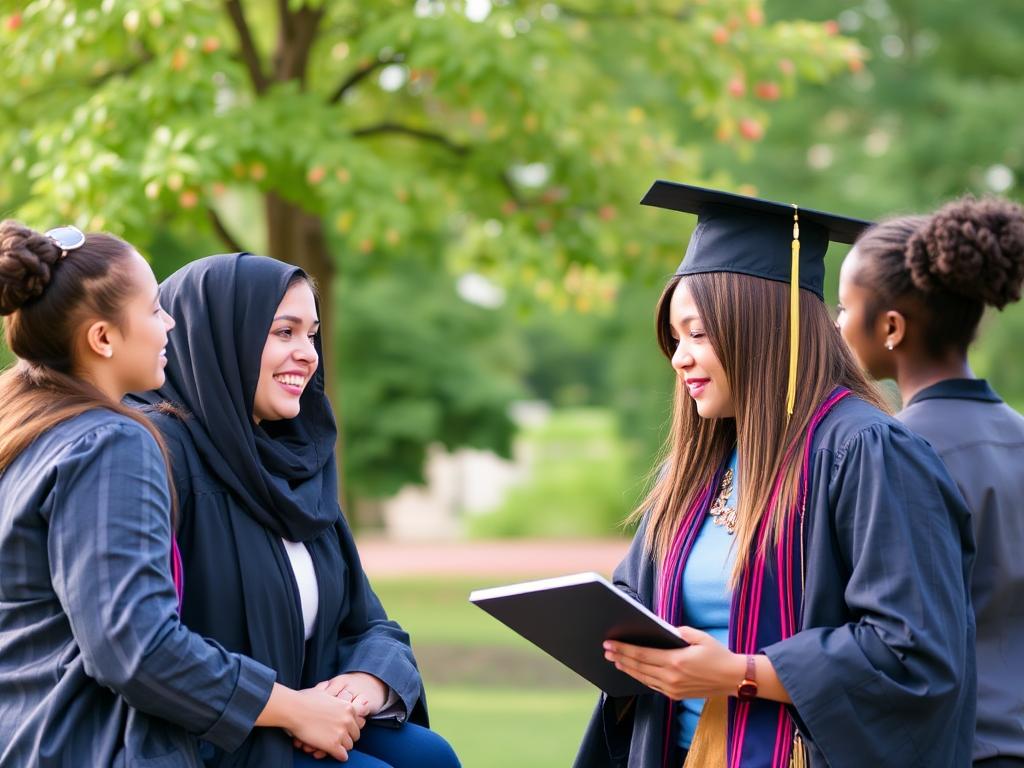
Finding a mentor can be invaluable for graduates. Encourage them to seek out mentors who can provide guidance, support, and insights into their chosen career paths.
8. Embrace Lifelong Learning
The pursuit of knowledge doesn’t end with graduation. Encourage graduates to embrace lifelong learning by attending workshops, webinars, and continuing education courses to stay competitive in their fields.
9. Reflect on Personal Growth
Encourage graduates to take time to reflect on their personal and academic growth throughout their studies. This reflection can help them appreciate their journey and identify areas for further development.
10. Stay Resilient and Adaptable
The transition from academia to the professional world can be challenging. Encourage graduates to stay resilient and adaptable in the face of obstacles. A positive mindset and the ability to adapt to change are crucial for success in any career.
Conclusion

As we welcome the New Year of 2025, implementing effective New Year Study Tips can set students on the path to academic success. Whether for kids, intermediate learners, or graduates, these tips provide a framework for developing better study habits, enhancing learning experiences, and achieving academic goals. By embracing these strategies, students can make the most of the new year and position themselves for success in their educational journeys.

